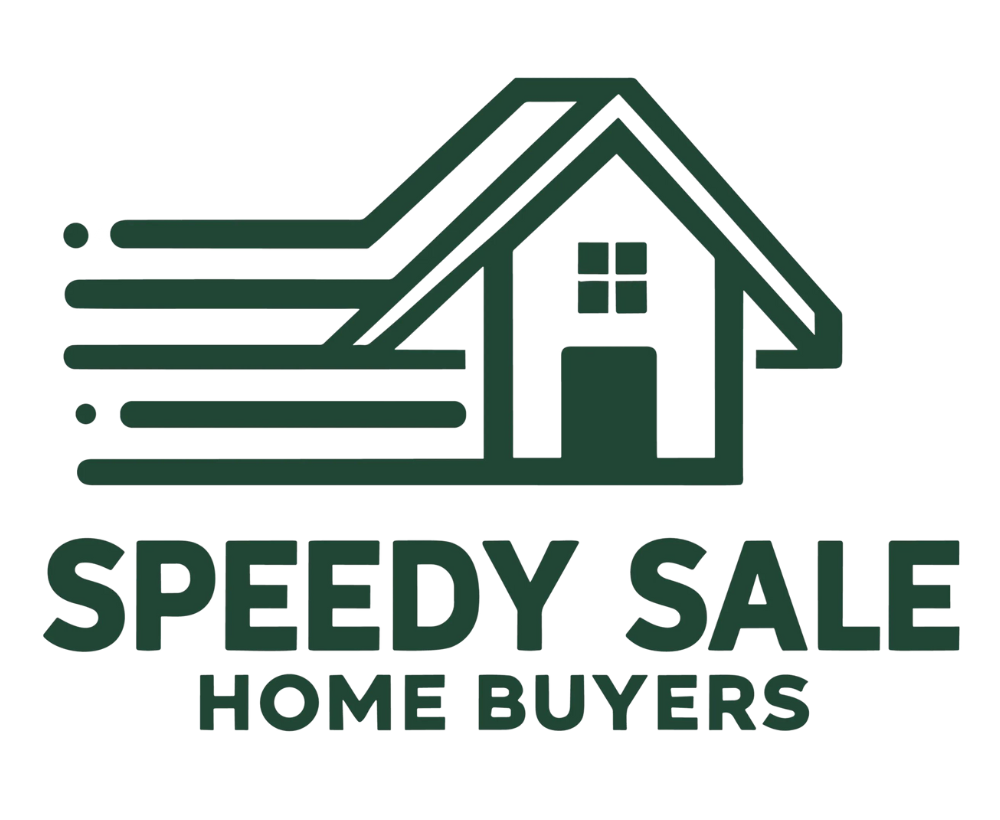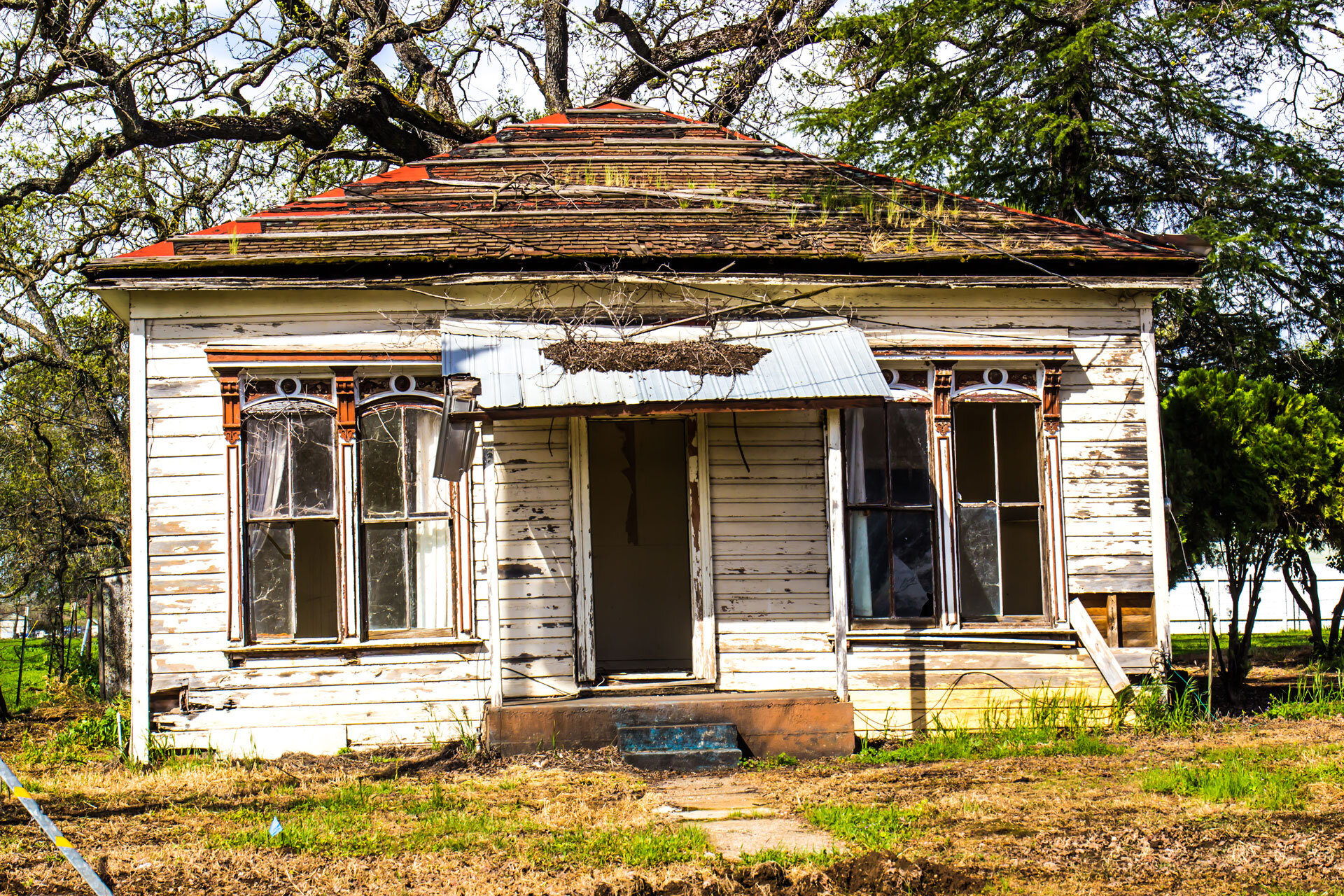The short answer is yes, you can sell a condemned house in Michigan. However, selling a condemned property is not as straightforward as selling a typical home. A condemned house is considered uninhabitable due to safety violations, structural damage, or other significant issues that make it unsafe for human occupancy. As a result, there are additional challenges and steps involved that could complicate the sale process.
In Michigan, selling a condemned house is not only about finding a buyer but also navigating the legal and logistical complexities tied to the property’s condition. Whether you’re facing foreclosure, an inherited property in disrepair, or simply need to offload a home that’s been deemed unsafe, it’s crucial to understand the implications of selling a condemned property.
What Are Condemned Properties in ?
A condemned property in Michigan has been marked by local authorities as unfit for human habitation, often due to health and safety violations. The condemnation can result from severe structural damage, fire damage, severe mold infestation, unsafe electrical wiring, or other significant hazards. Once a house is condemned, it can no longer be legally inhabited until it meets certain safety standards, which often involves major repairs.
In many cases, a condemned house is either demolished, heavily renovated, or completely rebuilt to meet local codes. Depending on the municipality, the owner may face fines or other penalties if they don’t take action to bring the property into compliance.
Why Are Houses Condemned?
Houses can be condemned for a variety of reasons. Some of the most common reasons include the following:

Health and safety violations
If a house has major health and safety violations, such as mold, asbestos, or lead paint, it may be condemned.

Structural damage
If a house has major structural damage, such as a collapsed roof or foundation issues, it may be condemned.

Fire damage
If a house has suffered major fire damage, it may be condemned if the damage is severe enough to make the house unsafe.

Abandoned or neglected
If a house has been left vacant and neglected for an extended period of time, it may be condemned due to safety and health concerns.
What Constitutes A Condemned House?
A condemned house is one that has been officially declared unsafe or uninhabitable by a local government authority, such as a city’s building department, health department, or fire marshal. The determination is typically based on inspections that identify significant hazards, including structural deficiencies, health risks, or environmental dangers that make the property dangerous for human occupancy. When a house is condemned, it is typically marked as unfit for habitation and is prohibited from being used until repairs or safety improvements are made.
In addition to structural issues and fire damage, a condemned property may also result from hazardous environmental factors. For example, homes with widespread mold infestations, particularly toxic mold like black mold, can lead to respiratory illnesses and other serious health problems. If the property’s plumbing or sewage system is severely damaged, leading to the spread of waste or contaminated water, it may be condemned due to the high risk of disease. Similarly, the presence of hazardous materials like asbestos, lead paint, or chemical contaminants can make a house uninhabitable. Even if these issues are hidden or not immediately visible, local authorities can condemn a house if they pose a significant long-term danger to public health or safety.
Dangers of a Condemned House
Condemned houses can be extremely dangerous due to a variety of hazardous conditions. For instance, a house with severe structural damage—such as weakened foundation walls, sagging ceilings, or rotting beams—poses a significant risk of collapse, especially during storms or other natural events. The compromised integrity of the building may not be immediately apparent, but it can lead to devastating accidents if someone unknowingly enters the property. In addition to physical instability, condemned homes may also have electrical systems that are outdated or faulty, which increases the risk of fires, electrocution, or other dangerous accidents. These hidden dangers make condemned homes a serious liability for anyone who might attempt to occupy or repair them without proper knowledge and expertise.
Another risk of condemned properties is the presence of hazardous materials or environmental dangers, such as asbestos, lead paint, or mold. Asbestos fibers, when disturbed, can cause severe lung diseases, including asbestosis and mesothelioma, and lead paint can be toxic, particularly to children and pregnant women. Mold, especially black mold, can spread rapidly in damp environments and lead to chronic respiratory issues, allergic reactions, and other health problems. Beyond these internal dangers, condemned houses in Michigan often become hotspots for vandalism, theft, and squatting. Criminal activity around these properties is common because the homes are typically left vacant and unprotected. Squatters may set up residence in these unsafe environments, further deteriorating the condition of the house and creating additional hazards like fire risks from unauthorized heating sources or unsanitary living conditions. These compounded risks make it clear why selling a condemned property is a challenging and often high-risk endeavor.
What Happens When A House Is Condemned?
If your property in Michigan has been condemned, the local government will post a notice declaring the house unsafe to enter or occupy. This official notice typically appears on the exterior of the building, often with clear warnings about health or safety hazards such as structural instability, fire risk, or toxic exposure. Once a house is condemned, it is legally prohibited from being inhabited, and the owner is responsible for addressing the issues that led to the condemnation. The local authorities will typically provide a formal written notice to the owner, detailing the specific violations or conditions that made the property unsafe. You will then be given a set amount of time—typically between 30 to 90 days—to either make the necessary repairs or appeal the condemnation order.
If you do not take action within the given time frame, the local government has the right to intervene in various ways. In extreme cases, the city or county can take legal action to demolish the property. This often happens when the cost of repairs is deemed excessive or when the safety risks are too great. In some instances, the government may choose to demolish the building to prevent further safety hazards, particularly if the structure is in danger of collapsing. The costs associated with demolition and the legal process can be significant, and in some cases, the municipality can place liens against the property, adding further financial strain. These consequences can make it even more difficult to recover any value from the property if you allow the situation to escalate without intervention.
As the owner of a condemned property, it is crucial to act swiftly to avoid these costly legal battles and potential penalties. One of the first options to consider is selling the condemned house to a local real estate investor or through an auction. Selling to investors who specialize in distressed or condemned properties can offer a quick resolution, as these buyers are often looking for properties that can be rehabilitated or redeveloped. However, you should be prepared for a lower sale price than you might expect for a habitable home, as the buyer will likely factor in the cost of repairs, the time it takes to bring the property up to code, and potential legal fees. Transparency is key during the sale process—make sure to disclose the property’s condition fully to avoid future disputes and ensure that all parties are aware of the challenges involved.
Another important step is to consult with a real estate agent or direct home buyer who specializes in dealing with condemned properties. These professionals have experience navigating the complexities of selling or resolving issues related to distressed homes. They can help assess the property’s value in its current condition and guide you through the process of listing, negotiating, or selling it directly to investors. Working with an expert can also help you understand the legal ramifications and assist in gathering the proper documentation, which can be critical in avoiding penalties or even criminal liability if the property is sold or transferred without the necessary disclosures. In many cases, working with a professional can save you time, money, and stress, ensuring that you are making the best decision based on your situation.
Additionally, before selling the condemned house, it’s important to consider whether making repairs or renovations is a more viable option. In some cases, the cost of repairs may be less than anticipated, especially if you’re able to tackle smaller issues yourself or with the help of contractors offering discounted services for distressed properties. If the property has historical value, a historic preservation grant or tax incentive program might be available to help offset the costs of renovations. Conversely, if you choose to repair the property, make sure that all work is inspected and approved by the appropriate local authorities to ensure that the home meets safety codes and is no longer considered condemned. Even if repairs seem like a daunting task, completing them successfully may increase the overall value of the property and allow you to sell it for a higher price, albeit with a larger upfront investment in time and money.
Lastly, it’s important to stay informed about local zoning and building laws, as these regulations can impact the fate of your property after it has been condemned. In some cases, the local government may allow repairs if the structure can be brought up to current codes, but in other cases, particularly in flood zones or areas with stricter building requirements, repairs might not be feasible. Some municipalities may have programs that allow condemned homes to be rehabilitated with significant oversight, while others may require the property to be demolished. Navigating these complex legal and regulatory frameworks can be challenging, but with the help of a skilled agent or legal advisor, you can make informed decisions about how to move forward with your condemned property, whether that means repairing it, selling it “as-is,” or allowing it to be demolished.
Get an offer today, sell in a matter of days.
START HERE: We buy houses in ANY CONDITION. Whether you need to sell your home fast for cash or list with a local agent for top dollar, we can help.
Can a Condemned House Be Fixed?
If you own a condemned house, you may be wondering if it is possible to fix the property and bring it back to a habitable state. The truth is it depends on the extent of the damage and the reason for the condemnation. Here are a few options for your Michigan property…
Steps to Selling a Condemned House
If you decide to sell a condemned house, there are several steps you should take to ensure a successful sale.
Get a Professional Inspection
Before you try to sell the house in Michigan, you should have a professional inspection performed. This will help you identify any structural issues or safety concerns that need to be addressed before the house can be sold. It will also give you an idea of how much it will cost to make any necessary repairs.
Address the Health and Safety Violations
If your house was condemned due to health and safety violations, the first step is to address those issues. This may involve removing mold, asbestos, lead paint, or other hazardous materials from the property. You may need to hire a professional contractor to help with this process, as it can be dangerous and complex.
Repair the Structural Damage
If your house has been condemned due to structural damage, such as a collapsed roof or foundation issues, you would need to repair those issues before the property can be deemed safe to live in. This may involve hiring a structural engineer to assess the damage and develop a plan for repair.
Address Fire Damage
If your house was condemned due to fire damage, you would need to repair the damage and make sure the property is up to code before it can be deemed safe to live in. This may involve hiring a Michigan contractor to replace damaged drywall, wiring, and other features.
Determine the Current Value of the House
Once you have identified any issues with the house, you should determine its value. This will help you set a realistic price for the house and attract potential buyers. You can get an appraisal from a professional Michigan appraiser or use online tools to estimate the value of the house.
Disclose the Status of the House
When you are selling a condemned house in Michigan, it is important to be transparent about its status. You should disclose the fact that the house has been condemned and any issues that were identified during the inspection. This will help you avoid any legal issues and build trust with potential buyers.
Consider Your Selling Options
There are several options available when it comes to selling a condemned house in Michigan. You should consider each option and choose the one that is best for your situation.
In many cases, it is best to hire a professional to help you fix a condemned house. A real estate investor or contractor who specializes in rehabbing properties may be able to help you navigate the process of bringing your property back to a habitable state.
Work With a Real Estate Agent or Professional Property Buyer
Selling a condemned house can be a complicated process, so it may be helpful to work with a real estate agent who has experience in this area. They can help you navigate the legal and financial aspects of the sale and increase your chances of finding a buyer.
In some cases, it may be more cost-effective to demolish a condemned house and start from scratch. This may be the case if the damage is extensive or if the property is in a state of disrepair.
While it is possible to fix a condemned house, it can be a challenging and expensive process. If you are considering fixing a condemned property, it is important to work with a professional and be prepared for a significant investment of time and money. As always, it is important to be transparent about the status of the property when you are selling it.

Cash Home Buyers in Michigan,
Hi, I’m Parker – The owner of Speedy Sale Home Buyers. It can be a handful to sell a Michigan house. From dealing with real estate agents who require fixes to scheduling open houses when buyers are available, the process comes with more stress than it’s worth. We’re here to get you a fair offer.
At Speedy Sale Home Buyers, we changed the game with a faster, smarter cash-buying solution. Sell your Michigan house with us; we buy houses as-is and pay cash, providing a straightforward and hassle-free transaction!
As highly reviewed, reputable cash home buyers, we do everything possible to keep the process moving at a speed you’re comfortable with. Our process matches your schedule no matter how fast you need to sell your Michigan house or land.
Options for Selling a Condemned House
If you own a condemned house, you may be wondering how to sell it and what your options are. One of the biggest obstacles you’ll face is finding a buyer, as many people are hesitant to invest in a property that comes with significant risks and potential costs. However, there are still viable options, depending on the extent of the damage and the reasons behind the condemnation.
One option is to sell the property to a Michigan real estate investor who specializes in distressed properties. These investors are often willing to take on the risks associated with condemned homes and can help you sell quickly. While you should be prepared to accept a lower price than you would for a typical home, remember that you won’t be responsible for repairs, marketing, commissions, or closing costs.
Another option is to sell the house at an auction. Auctions are often a good choice for condemned properties, as they attract buyers seeking a deal. However, keep in mind that the price you receive at an auction may be lower than what you could get through a traditional sale or by working with a direct property buyer.
Selling A Condemned House With An Agent
If you’re considering selling a condemned house in Michigan, working with a local real estate agent can be a valuable option. An experienced agent can guide you through the complexities of selling a condemned property and may be able to connect you with buyers willing to take on the challenge of repairing and restoring the home.
It’s essential to be fully transparent about the property’s condition and the necessary repairs. Being upfront about these issues not only helps set realistic expectations but also influences pricing and the level of interest from potential buyers. Failing to disclose known issues can lead to serious legal consequences and potential trouble down the road, so full disclosure is critical.
Selling A Condemned House For Cash
Another option for selling a condemned house in Michigan is to sell it for cash. Companies like Speedy Sale Home Buyers specialize in purchasing distressed properties, including condemned homes, for cash. While this route may result in a lower sale price compared to working with an agent or selling on the traditional market, it offers a fast, convenient solution for homeowners who need to sell quickly—without the burden of agent commissions or repair costs.
You can also consider selling to a Michigan real estate investor who focuses on buying distressed properties. These investors are often willing to take on the risk of purchasing a condemned home and can help facilitate a quick sale. While the offer price might be lower than you expect, the savings on agent fees and repairs can make this a financially smart choice.
Selling A Condemned House AS-IS
If you are unable or unwilling to make the necessary repairs to bring your condemned house up to code, you may be able to sell your Michigan property AS IS. This means that the buyer is aware of the property’s condition and is willing to take on the responsibility for any required repairs. However, it is important to be transparent about the status of the property and any required repairs, as this can impact the pricing and interest of potential buyers.
There are several options available for selling a condemned house in Michigan. You can choose to work with an agent or sell as-is for cash. It is important to assess your options carefully and work with a professional who can help you navigate the process of selling a condemned property in Michigan. Remember to be transparent about the status of the property and any required repairs, as this can impact the pricing and interest of potential buyers.
Other Options
You can try to sell the house to a local government agency or non-profit organization. These organizations may be interested in buying the house to use for affordable housing or other community projects. However, you should be prepared for a lengthy and complicated process if you choose this option.
Selling a condemned house is not easy, but it is possible. If you are considering selling a condemned house, you should take the time to understand the process and your options. With the right approach, you can sell your condemned house and move on to the next chapter of your life. Speedy Sale Home Buyers can help you sell your condemned house fast in Michigan. Reach out to us today to learn more! (313) 552-8608
How Speedy Sale Home Buyers Can Help
At Speedy Sale Home Buyers, we understand that dealing with a condemned house can be overwhelming and expensive. As real estate investors, we specialize in purchasing properties as-is, meaning you don’t need to worry about making repairs. Here’s how we can assist:
- Quick and Fair Offers: We provide fast and competitive offers, allowing you to sell your property without delay.
- No Permitting Hassles: We buy houses in any condition, so you don’t need to navigate the complex permitting process or make costly corrections.
- Streamlined Process: Our straightforward buying process ensures a smooth and stress-free transaction.
By choosing Speedy Sale Home Buyers, you can avoid the complications and expenses associated with condemned houses, making it easier to sell your house quickly and efficiently.
Contact us today to learn more about how we can help you sell your house without the stress and financial burden of dealing with a condemned house.
START HERE: We buy houses in ANY CONDITION. Whether you need to sell your home fast for cash or list with a local agent for top dollar, we can help.
Sell Your House Fast Michigan
• Addison Township
• Allen Park
• Auburn Hills
• Belleville
• Bloomfield Hills
• Brandon Township
• Berkley
• Beverly Hills
• Birmingham
• Clarkston
• Clawson
• Commerce Township
• Center Line
• Chesterfield Township
• Clinton
• Dearborn
• Dearborn Heights
• Detroit
• Eastpointe
• Farmington
• Fenton
• Ferndale
• Garden City
• Grand Blanc
• Grosse Pointe
• Hamtramck
• Hazel Park
• Harrison
Sell My House Cash Michigan
• Highland Park
• Holly
• Huntington Woods
• Independence Township
• Inkster
• Keego Harbor
• Lincoln Park
• Livonia
• Lake Orion
• Lake Township
• Lathrup Village
• Macomb
• Madison Heights
• Melvindale
• Milford
• Memphis
• Mount Clemens
• New Hudson
• Northville
• New Haven
• Novi
• Oak Park
• Oakland Township
• Oxford
• Pleasant Ridge
• Plymouth
• Pontiac
• Rochester
Cash Home Buyer Michigan
• Rochester Hills
• Royal Oak
• Redford Township
• Riverview
• Rochester
• Roseville
• Shelby
• South Lyon
• Southfield
• Southgate
• Springfield Township
• Sylvan Lake
• St. Clair Shores
• Sterling
• Sterling Heights
• Taylor
• Trenton
• Troy
• Utica
• Wayne
• Waterford
• Westland
• Wyandotte
• Wixom
• Warren

